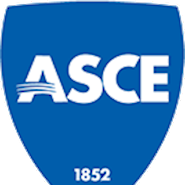ASCE has honored Amir H. Gandomi, Ph.D., A.M.ASCE; Megan Konar, Ph.D., A.M.ASCE; Carol C. Menassa, Ph.D., A.M.ASCE; Gaurav N. Sant, Ph.D., A.M.ASCE, and Hao Wang, Ph.D., M.ASCE, for the 2022 Walter L. Huber Civil Engineering Research Prizes.
Gandomi is honored for outstanding contributions to machine intelligence in civil structures and infrastructures. He is a world authority in the area of machine intelligence to solve civil and structural engineering problems, intersecting optimization algorithms and data analytics. His research transforms the way complex engineering systems are designed and maintained, resulting in enhanced modeling, improved safety, and cost reduction, especially for smart structures and materials. Attributed to his extensive experience acquired within an impressive timeframe, Gandomi has become a leading expert in applying machine learning algorithms. He has made fundamental contributions to the population-based optimization algorithms in civil and structural engineering. Impressively, his applied intelligent optimization studies have successfully tackled modern engineering problems, which are usually complex and black-box, and therefore cannot be handled by classical mathematical approaches.
Konar is recognized for research contributions to the interconnected infrastructure systems that support the water-food nexus, including policy relevant research on the role of food supply chains in the sustainability, security, and resilience of global water resources. The overarching goal of her research is to understand how to achieve water resources sustainability while simultaneously enhancing food supply chain resilience. She is of a new breed of engineers who take a systems-of-systems view of natural resources and engineered infrastructure. Her research helps guide national-scale policy and decision-making related to our critical infrastructure. She has addressed the sustainability of water resources in the U.S. economy and traced it through supply chains. Her group was the first to determine the reliance of supply chains on unsustainable groundwater use in critical aquifers. Konar’s work spans the United States, China, and sub-Saharan Africa, drawing on rich and varied data sources in the first two countries and addressing challenges associated with data-sparse regions in sub-Saharan Africa.
Menassa is honored for groundbreaking research in civil engineering through integration of civil and human infrastructure systems with demonstrated applications in reducing environmental impacts of buildings throughout their life cycle and improving human health and well-being. She is the John L. Tishman Faculty Scholar in the department of civil and environmental engineering at the University of Michigan. She is a nationally and internationally recognized leader in the development of simulation models and quantitative tools to assess the social, financial, and environmental factors in the development of sustainable infrastructure and constructed facilities. Menassa’s peer-reviewed scholarly activity is outstanding and has been throughout her academic appointments, and so have her conference and invited presentations. She has also developed new curricula for the very timely topic of Sustainability of Civil Infrastructure Systems. She has participated in numerous research projects, nine of which are sponsored by the National Science Foundation.
Sant is recognized for his pioneering work in decarbonization of cement and concrete through novel carbonated binding systems. His main research has been focused on decarbonizing heavy industry operations (e.g., cement, steel, petrochemicals, oil and gas refining) since these sectors account for nearly 36 percent of global CO2 emissions. To promote the nature of his research at UCLA and establish a national presence while ensuring excellence, with the support of university deans and vice chancellors Sant created the Institute for Carbon Management to promote and achieve technological, policy-based, and market-driven pathways for industrial decarbonization. He is an outstanding senior faculty member. Supporting this fact, he has achieved all his research and accomplishments through leading, mentoring, and advising a team a team composed, at various times, of over 50 undergraduate students, 20 Master’s/doctoral students, and more than 30 postdoctoral fellows.
Wang is honored for development of sustainable, durable, resilient, and smart pavement systems through innovative material science, computational modeling, and life-cycle analysis. He has built an independent research program including both fundamental and applied research at Rutgers University that aims to provide innovation and cost-effective solutions for problems and challenges encountered in transportation and pavement engineering related to public travel, the environment, and society. His vision is to unlock the future of pavement infrastructure to be able to achieve long-lasting life under climate change impact, reduce carbon footprints, promote circular economy, interface with automated and connected vehicles, and create positive energy roadways. Wang’s publications are well-cited, with a Google Scholar total citation of 5,510 and h-index of 43. He is very actively involved in the professional community of civil and transportation engineering.
The Walter L. Huber Civil Engineering Research Prizes are awarded to members of the Society, in any grade, for notable achievements in research related to civil engineering. Preference is given to younger members (generally under 40 years of age) of early accomplishment who can be expected to continue fruitful careers in research.



